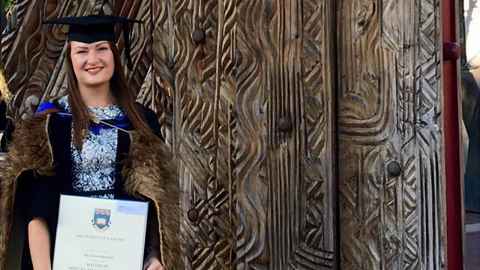Speech-language therapist
There are excellent work opportunities for qualified speech language therapists both within New Zealand and internationally.
A career in speech therapy
Speech-language therapists are needed in health and education positions throughout New Zealand.
As a result of an ageing population, therapists are in steady demand to help patients with impaired language function due to neurological conditions such as stroke and Parkinson’s disease. Therapists also work with adults and children who have swallowing and communication difficulties.
Speech language therapists work in a range of settings, including hospitals, schools, community rehabilitation facilities, special schools and in early intervention teams.
Sector outlook
Newly qualified speech-language therapists usually find work within a year of finishing study, or sooner if they are accepted into a graduate programme.
Experienced speech-language therapists have a good chance of finding work. Fixed-term work is often available. Demand for speech-language therapists is steady because:
- New Zealand's ageing population means that speech-language therapists are needed to help older patients such as stroke victims recover speech and language functions
- More private practices are opening to help school children and new entrants who cannot be treated through the public health service.
Becoming a registered speech therapist
To become a speech-language therapist you need to:
- Have a bachelors degree in Speech and Language Pathology (Honours) or Speech and Language Therapy (Honours)
- Complete a masters degree in Speech and Language Pathology or Speech-Language Therapy Practice.
The Master of Speech-Language Therapy Practice programme provides you with a clinical qualification in speech and language therapy.
Speech-language therapy scholarships
The Ministry of Education offers speech-language therapy scholarships to students who intend to work with children.
More information about speech-language therapy scholarships
The Children's Act 2014
The Children's Act 2014 means that if you have certain serious convictions, you can’t be employed in a role where you are responsible for, or work alone with, children.
Secondary education
A tertiary entrance qualification is required to enter further training. Useful subjects include biology, chemistry, health, languages, te reo Māori and English.
Amy’s story
Amy Rosenfeld graduated with a Master of Speech-language Therapy Practice in 2016 and works for the Southern District Health Board in Dunedin.

“I've been interested in speech and language since high school. I ended up studying journalism but, while travelling and learning new languages, I became fascinated by psychology and linguistics, and decided I wanted a career where I could help people and make a difference.
“Speech and language therapy involves assessment and treatment of a huge range of communication and swallowing disorders both in adults and children.
"The MSLTPrac course is very intensive, and helps you to learn a lot about yourself and become very close with the people you study with. I made some fantastic friends through the course and felt very privileged to learn from some of the most respected and knowledgeable people in the SLT field. I particularly enjoyed the practical components that were emphasised throughout the course, including the opportunity to go to other parts of the country on placements.
“I love meeting new people, finding out what is important to them and helping them to get there. It is so wonderful to see improvement in your patients and the difference it can make in their lives and those of the people around them. I also enjoy the puzzle of complex cases and trying to work out the best approach.
“The University of Auckland has a great reputation for a well-rounded course that prepares you well for working as a SLT in New Zealand and overseas. The Speech Science staff are also very supportive of students and work to understand their individual needs as learners.”
The Master of Speech Language Therapy Practice programme provides you with a clinical qualification in speech and language therapy.
Job options
Most speech-language therapists work for the Ministry of Education or the Ministry of Health.
Other employers include:
- Private speech-language therapy practices
- Charitable trusts
- Universities
- Schools